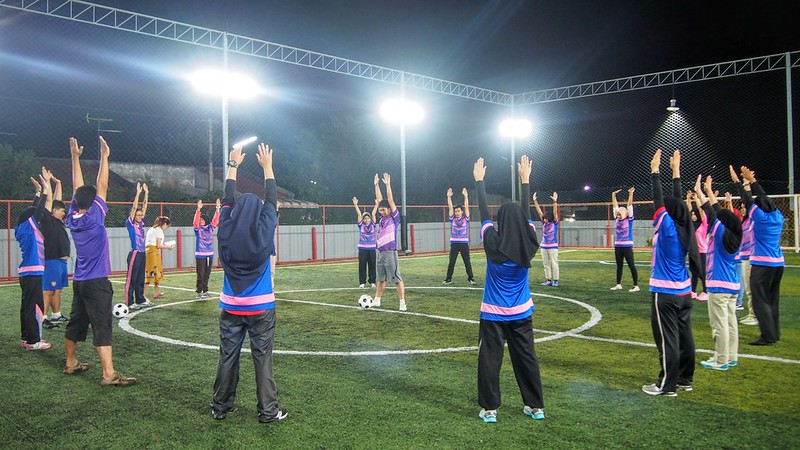Amidst controversy over a hijab-wearing football club in the predominantly Muslim Deep South, leading academics and activists have urged locals to be more tolerant of gender identities.
The statement was issued about a week after a Thai PBS TV programme was broadcast on 7 February 2017 featuring Anticha Saengchai and Daranee Thongsiri, LGBT activists and owners of the Buku Books & More Pattani Bookstore, who founded the football club.
After the programme was broadcast, the two were subject to various attacks on social media alleging that they were promoting homosexual relationships, which goes against what is perceived as mainstream Islamic religious doctrines.
Some local Muslims even posted Facebook messages threatening to use violence to stop the activities of Anticha and Daranee, which prompted the two to close down the bookshop for the time being.
In support of the two activists and members of Buku FC, the TANC noted that online hate speech directed against them might lead to irreversible violence and serious human rights violations which would be counterproductive to the peace process in the Deep South.
“Discussions of the right to gender identification among Muslims in the Deep South should occur creatively and based on the principles of equality and human rights,” reads part of the TANC statement.
The academics concluded that all people, regardless of race, gender, nationality and ideology, should be able to participate in peace efforts to put an end to the 13-year conflict between the Thai state and Muslim insurgent groups in the Deep South.
Earlier, many activists and the Chair of the Civil and Political Rights Sub-Committee of the National Human Rights Commission, Angkhana Neelapaijit, issued statements in support for Anticha and Daranee.
A Muslim herself, Angkhana wrote on her Facebook account “I feel very sad to see women and girls being hunted and intimidated under the pretext of religion. This is not only about hate crime and hate speech, but about prejudice and the power structure based on gender, which are deeply rooted in [Deep South] society.”
In response to the harassment of the two activists, Patrick Jory, a well-known historian from the University of Queensland, Australia, who has studied Thailand’s Deep South, pointed out “claims based on religion are really another aspect of the way that men try to control women’s bodies”.
He added “It is wrong and very unjust to accuse someone who is following their own sexuality of committing a ‘sin’. One’s sexuality is a deep and natural part of who you are. It is impossible to deny it. People who deny it because of social or religious pressure live unhappy lives.”

Buku FC team-mates warm-up before playing football. Photo by Fadila Hamidong
Since 2007, Prachatai English has been covering underreported issues in Thailand, especially about democratization and human rights, despite the risk and pressure from the law and the authorities. However, with only 2 full-time reporters and increasing annual operating costs, keeping our work going is a challenge. Your support will ensure we stay a professional media source and be able to expand our team to meet the challenges and deliver timely and in-depth reporting.
• Simple steps to support Prachatai English
1. Bank transfer to account “โครงการหนังสือพิมพ์อินเทอร์เน็ต ประชาไท” or “Prachatai Online Newspaper” 091-0-21689-4, Krungthai Bank
2. Or, Transfer money via Paypal, to e-mail address: [email protected], please leave a comment on the transaction as “For Prachatai English”
